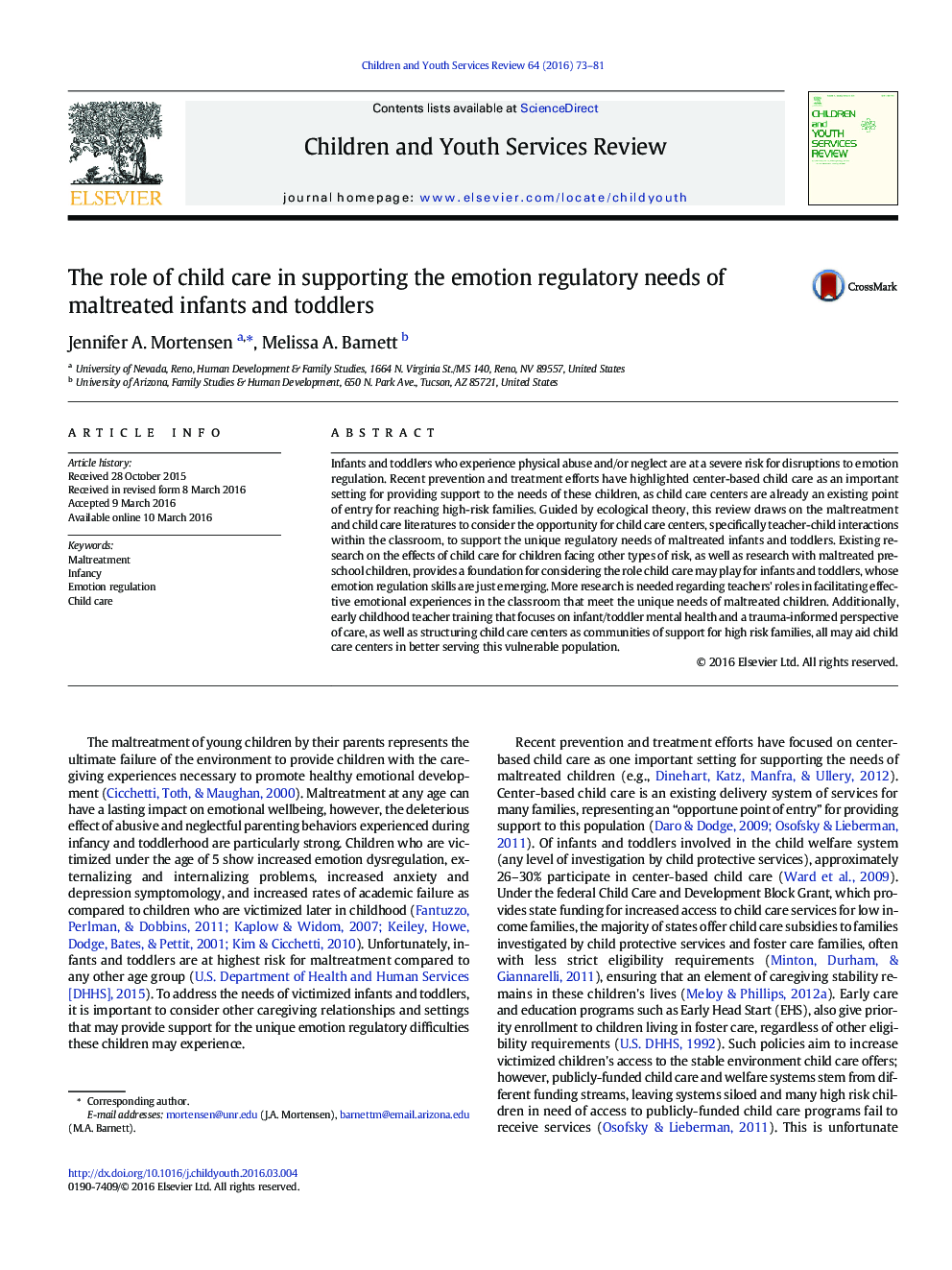| Article ID | Journal | Published Year | Pages | File Type |
|---|---|---|---|---|
| 345836 | Children and Youth Services Review | 2016 | 9 Pages |
•Child care can serve as a developmental asset for maltreated infants/toddlers.•Research is needed on developmentally appropriate practice for this population.•Teacher training can be improved to better meet maltreated children's needs.•Child care centers can serve as sources of support for high risk families.
Infants and toddlers who experience physical abuse and/or neglect are at a severe risk for disruptions to emotion regulation. Recent prevention and treatment efforts have highlighted center-based child care as an important setting for providing support to the needs of these children, as child care centers are already an existing point of entry for reaching high-risk families. Guided by ecological theory, this review draws on the maltreatment and child care literatures to consider the opportunity for child care centers, specifically teacher-child interactions within the classroom, to support the unique regulatory needs of maltreated infants and toddlers. Existing research on the effects of child care for children facing other types of risk, as well as research with maltreated preschool children, provides a foundation for considering the role child care may play for infants and toddlers, whose emotion regulation skills are just emerging. More research is needed regarding teachers' roles in facilitating effective emotional experiences in the classroom that meet the unique needs of maltreated children. Additionally, early childhood teacher training that focuses on infant/toddler mental health and a trauma-informed perspective of care, as well as structuring child care centers as communities of support for high risk families, all may aid child care centers in better serving this vulnerable population.
